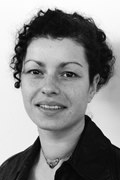Studying at the University of Verona
Here you can find information on the organisational aspects of the Programme, lecture timetables, learning activities and useful contact details for your time at the University, from enrolment to graduation.
Academic calendar
The academic calendar shows the deadlines and scheduled events that are relevant to students, teaching and technical-administrative staff of the University. Public holidays and University closures are also indicated. The academic year normally begins on 1 October each year and ends on 30 September of the following year.
Course calendar
The Academic Calendar sets out the degree programme lecture and exam timetables, as well as the relevant university closure dates..
| Period | From | To |
|---|---|---|
| Sem. 1A | Sep 21, 2020 | Oct 31, 2020 |
| Sem. 1B | Nov 9, 2020 | Jan 9, 2021 |
| Sem. 2A | Feb 15, 2021 | Apr 1, 2021 |
| Sem. 2B | Apr 14, 2021 | May 29, 2021 |
| Session | From | To |
|---|---|---|
| Sessione d'esame invernale | Jan 14, 2021 | Feb 13, 2021 |
| Sessione d'esame estiva | Jun 7, 2021 | Jul 24, 2021 |
| Sessione d'esame autunnale | Aug 23, 2021 | Sep 18, 2021 |
| Session | From | To |
|---|---|---|
| Sessione di laurea estiva | Jul 5, 2021 | Jul 10, 2021 |
| Sessione di laurea autunnale | Nov 8, 2021 | Nov 13, 2021 |
| Sessione di laurea invernale | Mar 28, 2022 | Apr 1, 2022 |
| Period | From | To |
|---|---|---|
| Festa di Ognissanti | Nov 1, 2020 | Nov 1, 2020 |
| Festa dell'Immacolata | Dec 8, 2020 | Dec 8, 2020 |
| Vacanze di Natale | Dec 24, 2020 | Jan 6, 2021 |
| Vacanze di Pasqua | Apr 2, 2021 | Apr 6, 2021 |
| Festa della liberazione | Apr 25, 2021 | Apr 25, 2021 |
| Festa del lavoro | May 1, 2021 | May 1, 2021 |
| Festa del Santo Patrono | May 21, 2021 | May 21, 2021 |
| Festa della Repubblica | Jun 2, 2021 | Jun 2, 2021 |
| Vacanze estive | Aug 9, 2021 | Aug 15, 2021 |
Exam calendar
Exam dates and rounds are managed by the relevant Humanistic Studies Teaching and Student Services Unit.
To view all the exam sessions available, please use the Exam dashboard on ESSE3.
If you forgot your login details or have problems logging in, please contact the relevant IT HelpDesk, or check the login details recovery web page.
Should you have any doubts or questions, please check the Enrollment FAQs
Academic staff
 giorgia.decarli@univr.it
giorgia.decarli@univr.it
 licia.landi@univr.it
licia.landi@univr.it
 domenico.lipari@univr.it; domenico.lipari@uniroma1.it
domenico.lipari@univr.it; domenico.lipari@uniroma1.it
 angeloluigi.sangalli@univr.it
angeloluigi.sangalli@univr.it
Study Plan
The Study Plan includes all modules, teaching and learning activities that each student will need to undertake during their time at the University.
Please select your Study Plan based on your enrollment year.
1° Year
| Modules | Credits | TAF | SSD |
|---|
2° Year activated in the A.Y. 2021/2022
| Modules | Credits | TAF | SSD |
|---|
1 module between the following1 module between the following3° Year activated in the A.Y. 2022/2023
| Modules | Credits | TAF | SSD |
|---|
1 module among the following1 module between the following| Modules | Credits | TAF | SSD |
|---|
| Modules | Credits | TAF | SSD |
|---|
1 module between the following1 module between the following| Modules | Credits | TAF | SSD |
|---|
1 module among the following1 module between the following| Modules | Credits | TAF | SSD |
|---|
Legend | Type of training activity (TTA)
TAF (Type of Educational Activity) All courses and activities are classified into different types of educational activities, indicated by a letter.
Work and Organizational Psychology (2021/2022)
Teaching code
4S002196
Teacher
Coordinator
Credits
9
Language
Italian
Scientific Disciplinary Sector (SSD)
M-PSI/06 - WORK AND ORGANIZATIONAL PSYCHOLOGY
Period
Sem. 2A, Sem. 2B
Learning outcomes
"1) To know and understand the psychological theories that make against the fundamental processes of functioning and adaptation of the individual to the material and social environment; 2) Know and understand the theories related to the mechanisms of psychological functioning of people at work and in organizations, including their motivations, satisfaction and well-being; 3) Apply the theories on the functioning of individuals, groups and organizations to the analysis of phenomena of learning and personal and social change. SPECIFIC TRAINING OBJECTIVES To know the meanings of work for personal and professional identity; to know the variables that positively and negatively affect work performance and organizational processes; to explore the relationships between “person” and “role” and how the both of them affect the relationships between motivation and satisfaction (wellbeing vs malaise in organizations); to know how to read individual, relational and group phenomena in organizations in order to manage them to foster wellbeing and hinder malaise.”
Program
The course deals with the typical topics of work and organizational psychology and the fundamentals of the so-called human resource management, that is to say:
- Personnel research, selection and assessment (assessment of: position, performance and potential), as well as job placement and organizational socialization (tutoring, mentoring e coaching);
- Human resource training and development, as well as processes of growth, creativity and innovation in organizations;
- Vocational guidance related to career development, both in and out the same organization.
These topics provide the occasion to also deal with:
- Task performance and contextual performance;
- Teamwork, team building and involvement;
- Leadership management of people at work;
- Job satisfaction and motivation at work;
- Health, wellbeing and psychosocial risks (stress, mobbing and burnout);
- Diversity management.
Bibliography
Examination Methods
Written exam with a variable number of open and closed questions directly drawn by the texts. During the course, examples of written tasks and relative answers are given to the students in the classroom, so that they can become familiar with the kind of tasks they are going to deal with and can ask questions of any kind.
Type D and Type F activities
Modules not yet included
Career prospects
Module/Programme news
News for students
There you will find information, resources and services useful during your time at the University (Student’s exam record, your study plan on ESSE3, Distance Learning courses, university email account, office forms, administrative procedures, etc.). You can log into MyUnivr with your GIA login details: only in this way will you be able to receive notification of all the notices from your teachers and your secretariat via email and soon also via the Univr app.
Gestione carriere
Linguistic training CLA
Student mentoring
Practical information for students
Documents
| Title | Info File |
|---|---|
|
|
pdf, it, 325 KB, 02/05/23 |
|
|
pdf, it, 212 KB, 02/05/23 |
|
|
pdf, it, 131 KB, 02/05/23 |
Graduation
Documents
| Title | Info File |
|---|---|
|
|
pdf, it, 101 KB, 10/04/24 |
|
|
pdf, it, 112 KB, 14/05/24 |
|
|
pdf, it, 296 KB, 28/07/22 |
|
|
pdf, it, 142 KB, 28/07/22 |
|
|
octet-stream, it, 24 KB, 28/07/22 |
List of thesis proposals
Stage e Tirocini
Le attività che ci si aspetta il/la tirocinante curriculare in Scienze psicologiche per la formazione svolga presso gli enti che lo/la ospitano riguardano principalmente attività di affiancamento nei seguenti ambiti:
- Formazione, sviluppo, innovazione e gestione delle risorse umane;
- Orientamento scolastico e professionale;
- Ricerca, selezione e valutazione psicologica del personale.
Sono ritenuti ambiti adeguati le diverse agenzie per il lavoro, le agenzie di formazione, le agenzie di orientamento, le società di consulenza e tutti gli enti, le associazioni, le aziende, le imprese e, in generale, le organizzazioni che al loro interno operano attività di ricerca, selezione e valutazione psicologica del personale, attività di formazione, sviluppo, innovazione e gestione delle risorse umane e attività di orientamento scolastico e professionale. Anche enti di ricerca e Università dove si conducono studi e indagini su questi temi sono ambiti ritenuti adeguati.
Lo/la studente/essa sarà seguito/a da un tutor accademico e da un tutor aziendale. Alle attività di tirocinio sono attribuiti 9 CFU (pari a 225 ore).
Il tutor aziendale deve essere un laureato in psicologia anche non iscritto all’albo.
Linee Guida per lo Svolgimento dei Tirocini Curriculari
- Tutte le informazioni in merito agli stage per futuri studenti sono disponibili alla pagina Stage e tirocini.
- Tutte le informazioni in merito agli stage per studenti iscritti sono pubblicate in MyUnivr - come fare per - stage e tirocini.
- Tutte le informazioni in merito agli stage per le aziende sono disponili alla pagina Stage e tirocini per azienze.

 3356852559
3356852559

























